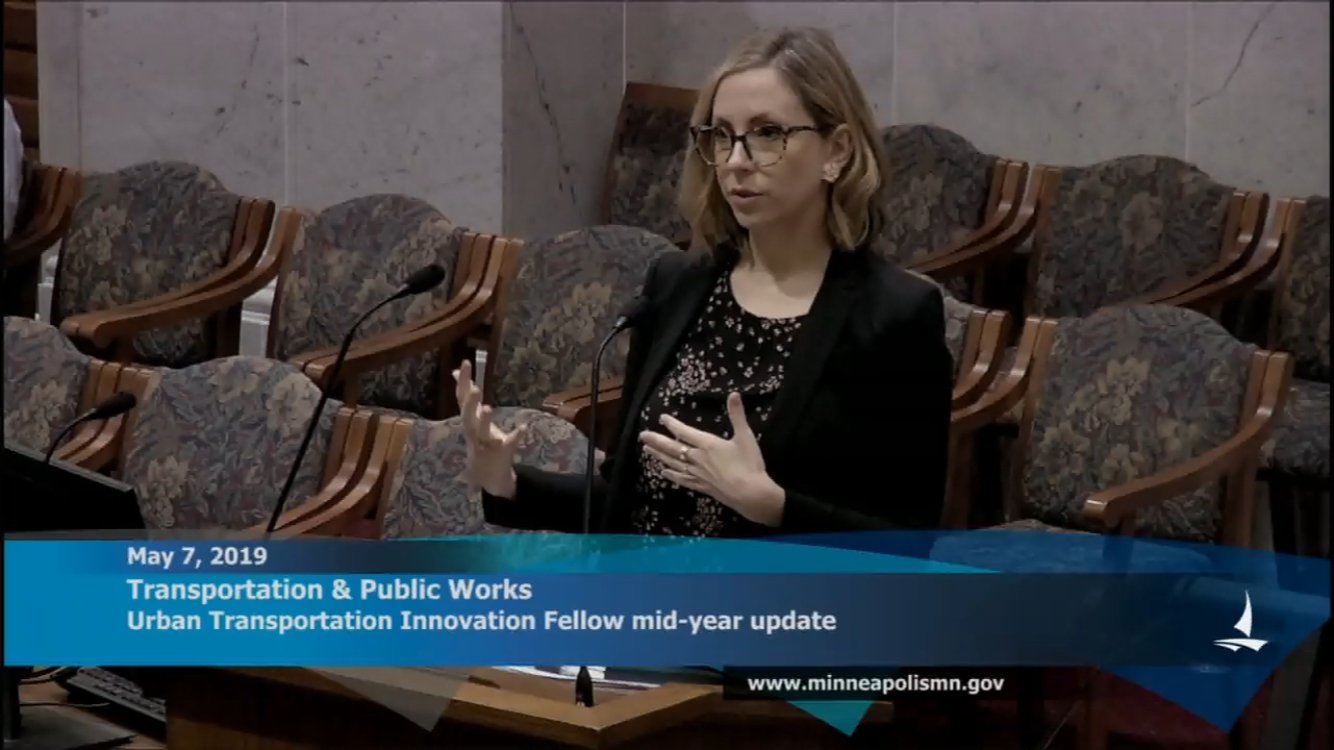Renee Tyler is currently the Director of Community Services for the City of Eau Claire, WI, and this spring she will be transitioning to a position as the Director of Administration for the City of Fulton, MO. We spoke with Renee about her career in public service, and the importance of inclusivity at every level of decision making in government.
How did you end up working in government?
“Prior to my work in government, I worked in the finance sector in New York City. For years I wanted to help people and see a result. The thing about the private sector often is that you don't see the impact of what you're doing.
My undergraduate degree is in social welfare, and I have never officially used it, but I use it everyday in community services. My beginning in public service was influenced by living and working in the New York City metro area; seeing how one neighborhood can be beautiful, and not even two blocks down and a block over, and it's not beautiful anymore. These experiences got me learning about service, allocations and funding, and people that were advocating for these areas. When I started this journey, I didn't think I was going to be here. No, I was just looking for a way to be more proactive and to do something that would be a part of positive change.”
After getting into government, how have you become the leader you are today?
“For me, I think that the work has grown because my voice has grown. I have now been able to expand my work, by looking at the inclusion of equitable policies that encourage women and minorities. My career path has taken on a form that is different from many, because I try to use my voice, and I try to implement policies and procedures that are inclusive. This path has allowed me to gain more confidence in speaking my truth, but also hearing, listening, and trying to be a conduit for those who are not often heard or seen.”
Renee Tyler and City of Eau Claire staff at the 2021 Public Works Appreciation Cookout
What challenges do you face in your day-to-day work?
“Part of the concern that I have with things that are happening today in government is that we tend to still want to be status quo, and we aren’t addressing the important issues. I'm a Black woman working in a white male-dominated area. That's a lot to take in for some people. When I speak truth to light, I'm trying to be as transparent as possible and, in certain areas, making people understand that some of what I'm speaking transcends race. I ask the question, how can we move forward? If I'm in an organization and I'm the minority, but the majority of the people in the organization don't treat one another with respect, how can I expect you to treat me with respect?
I am not here to be the Black director, I'm not here to be the Black female director. I am here to be the director. And I try to channel those things that I've experienced into my work and my advocacy.”
Can you share an example of your lived experience influencing your work?
“Transit is a passion of mine. I grew up in rural Arkansas, a very car dependent place, and I was blessed to have reliable transportation. But so many people in my community didn't have access to transportation. Then you factor in navigating life using a mobility device, or having a visual impairment. These factors don’t stop at race, they don't stop at gender. They are equal opportunity issues. So getting people to recognize and respect the need for everybody to have accessibility in community services, to me, that's big.”
How do we do this? What can we do to bring more accessibility?
“I'm a huge advocate of succession planning. In government, most organizations and succession plans target mid-level training for mid-level employees, with the intent to help them become city managers, county managers, and supervisors. I think that's great, but what I don't see enough of is intentional succession planning focused on frontline workers moving into supervisory roles and into management positions.
I mentor some of my supervisors, and everybody is extended the invitation. Any opportunity that comes across my desk for training or whatever, if frontline staff wants to sign up for it I say, ‘I’ve got money for it, I have the budget, let's do it’. In my work, I am trying to show what inclusion really looks like. Something that becomes disheartening is having to explain to peers what I'm doing, and why I'm doing it.”
How should we be doing things differently in local government to make meaningful change?
“You don't get organizational change with comfort. Change is not comfortable. If change was comfortable, we wouldn't be dealing with what we're dealing with today!
I'm of the mindset that when everybody is sitting at the table is shaking their head yes, and we haven't even discussed the issue, it's a failure.
When you get people talking, expressing, and you have civil discourse, that’s when change can come about. I can't fix something if I don't know anything about it. I need the operators. I need the frontline workers in the room, I need the team that's outside fixing the sidewalks and planting trees, I need their input. How can I make policy decisions or choices that impact how you do your job, if I don't know how you do your job day to day? It seems like it should be common sense, but the hierarchy of work just isn’t working anymore.”


























